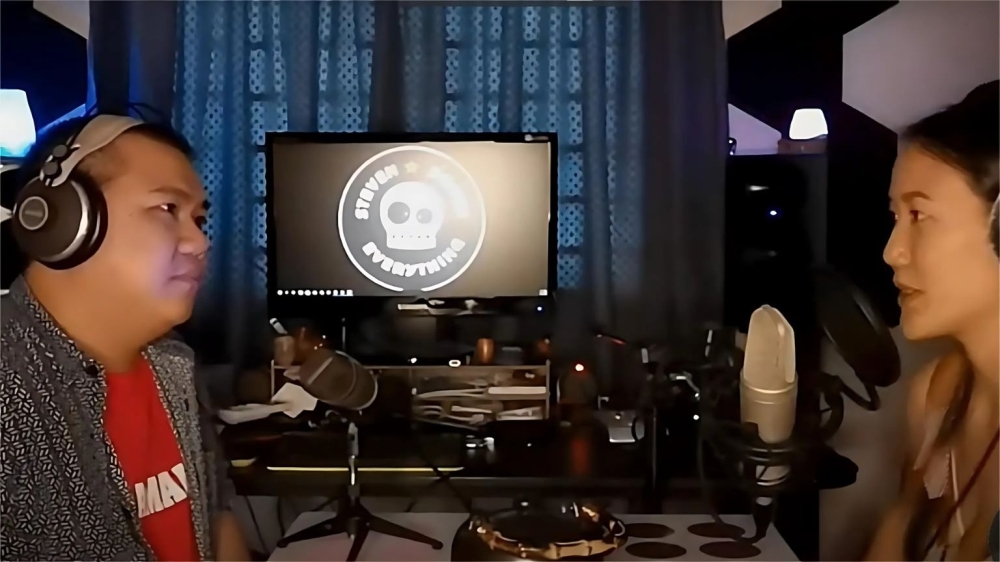Published date
Written by
- Malaysians are embracing podcasting, driven by FOMO and personal interests.
- Producing podcasts costs RM3,000-RM5,000 per episode.
- Cultural diversity limits broad appeal in Malaysia’s podcast scene.
- Success requires hosting skills and engaging, relatable content.
- Podcasting generates limited income, thriving mainly as a passion project.
KUALA LUMPUR, Jan 1 — In an era dominated by technology and gadgets, podcasts have surged in popularity, with more Malaysians, ranging from teenagers to actors and influencers, eager to launch their own.
But what’s driving this boom? Malay Mail spoke to several local podcasters about why many are jumping on board, the costs involved, the challenges, and what it takes to succeed in this rapidly changing medium.
So why are many joining the trend?
Ho Ming Han, 35, a podcaster with five years of experience, attributed the trend to a widespread fear of missing out (FOMO).
“The TikTok era has taught us that everyone follows trends.
“We started podcasting five years ago when no one was on that train, but now people realise they can all do it too,” he said.
Personal interest also plays a significant role, with many podcasters creating content around topics that resonate with them, whether it’s personal experiences, current trends or empowering others.
“Some just want to do it for fun, while others see it as an opportunity to grow their influence or even become famous.”
How much does it cost to start one?
The cost of an entry-level podcast typically ranges from RM3,000 to RM5,000 per episode.
This includes key expenses such as hiring a videographer, which can cost between RM1,000 and RM1,500 per session.
“Unless you have a friend willing to do it for RM500,” said Ho.
Studio rentals may add another RM2,000 per episode, while editing services for those lacking technical skills can cost between RM1,000 and RM1,300.

Market saturation: It’s not a bad thing, it’s a good thing
An increased number of podcasts leads to market saturation, which fuels industry growth.
In any content market, saturation is key to expanding audience numbers.
Without it, a podcast often remains confined to a niche, limiting its reach and hindering broader development.
Jin Lim, 40, a broadcaster with twenty years of experience, sees this as a positive trend.
“It gives the public a wide array of on-demand podcasts.
“There’s something for everyone, whether it’s lifestyle, education, finance, news and more,” he said.
Why is Malaysia’s podcast scene still considered niche compared to other South-east Asian countries?
Malaysia is home to a variety of cultural groups, each with distinct content preferences.
This linguistic and cultural divide often makes it difficult for podcasters to create content that resonates universally, resulting in inefficiencies in both production and audience engagement.
So, what causes podcasts to fail?
Ho highlighted two key issues.
“Firstly, can you talk about what you truly want to discuss?” he asked.
The second challenge, he said, is that podcasting requires hosting skills, which aren’t always innate.
“It’s one thing to chat with a friend, but another to speak in front of a camera,” Ho said.
“It takes the ability to engage with guests, stay on track with the script and maintain energy throughout the conversation.”

Can Malaysians turn podcasting into a full-time career?
Ho said that while many have tried making podcasting a full-time profession, most have faced harsh realities, such as high costs and the challenge of getting viewers invested.
It’s best kept as a hobby, especially unless you have experience in social media content or a strong network within the industry.
Turning it into a viable business can be an uphill battle without the right connections and expertise.
Steven Tan, 39, podcaster and voice-over talent, acknowledged this challenge.
“We’re still a far cry away from this,” he said.
However, he remained optimistic, noting that podcasting is generating revenue and providing livelihoods for a select few.
Tan emphasised that the most profitable podcasts are typically those of well-known figures, celebrities or former politicians, who likely don’t rely on podcasting as their primary source of income.
“For them, it is more about the platform it provides to connect with listeners and share their views.”
What does it take to succeed in podcasting?
One of the most important skills in podcasting is the ability to speak in a way that draws listeners.
Hosting a podcast isn’t just about having a microphone, it’s about engaging your audience through your voice and storytelling.
If you can’t capture people’s attention and keep them coming back for more, then podcasting may not be the right path.
“That’s the hard truth of the medium,” said Ho.
Lim said that podcasting takes patience, a lot of failures and plenty of trial and error.
The most important thing is continuously improving your skills to retain an audience.
“The best advice is to just start.
“Along the way, you’ll discover what works, and you’ll keep refining it,” Lim added.
